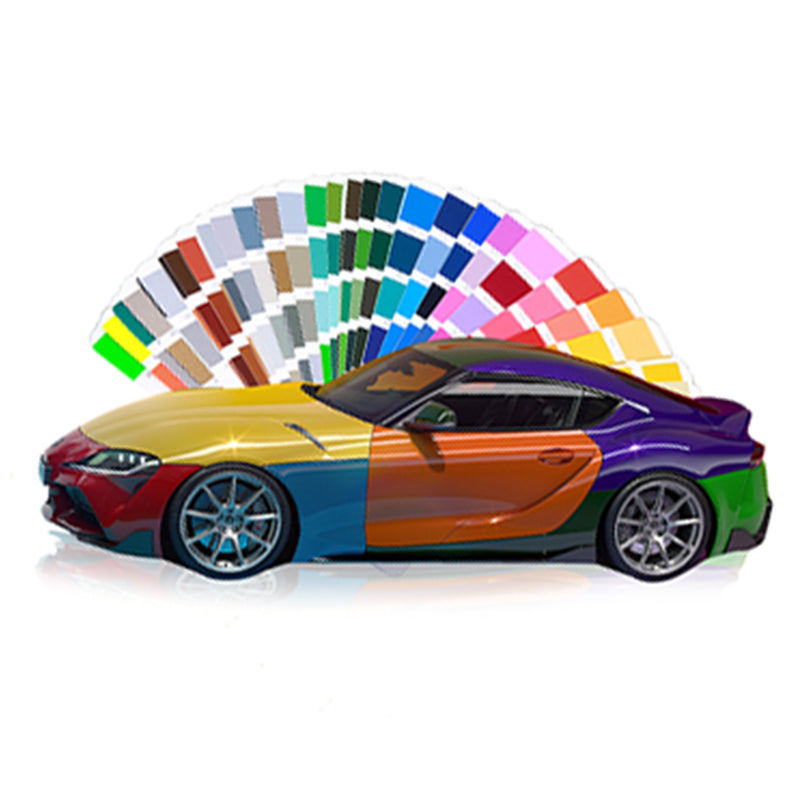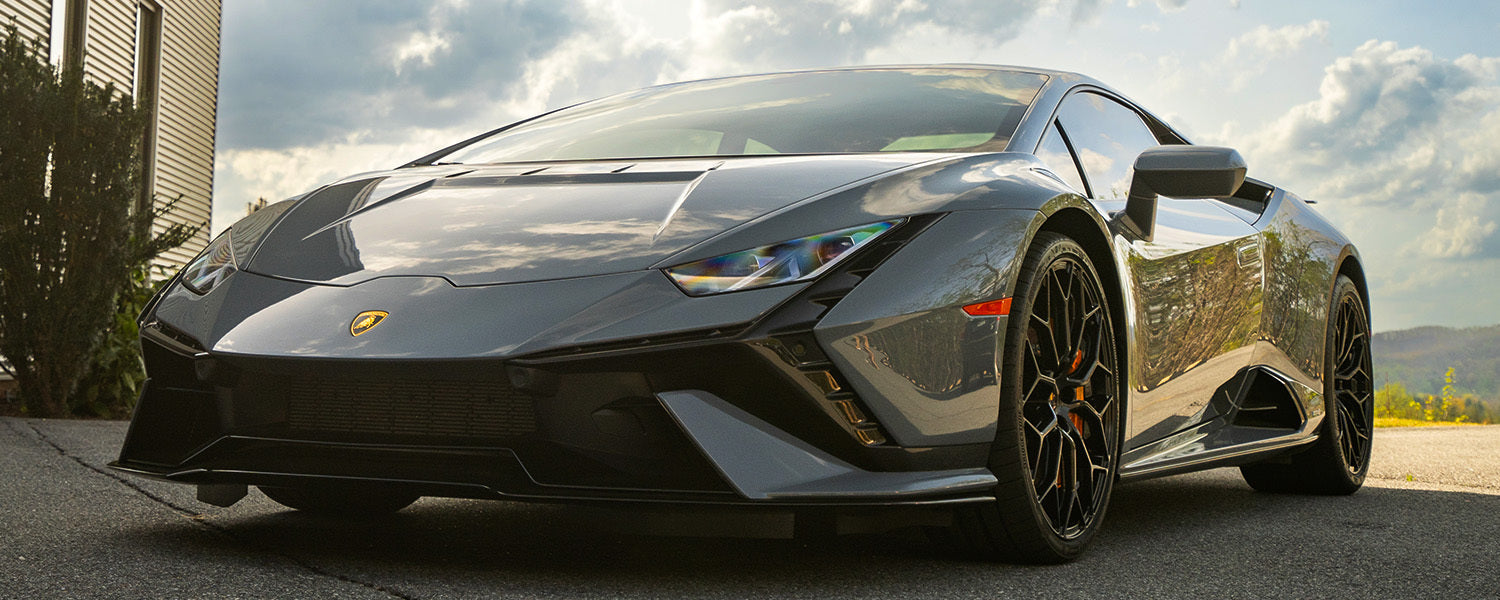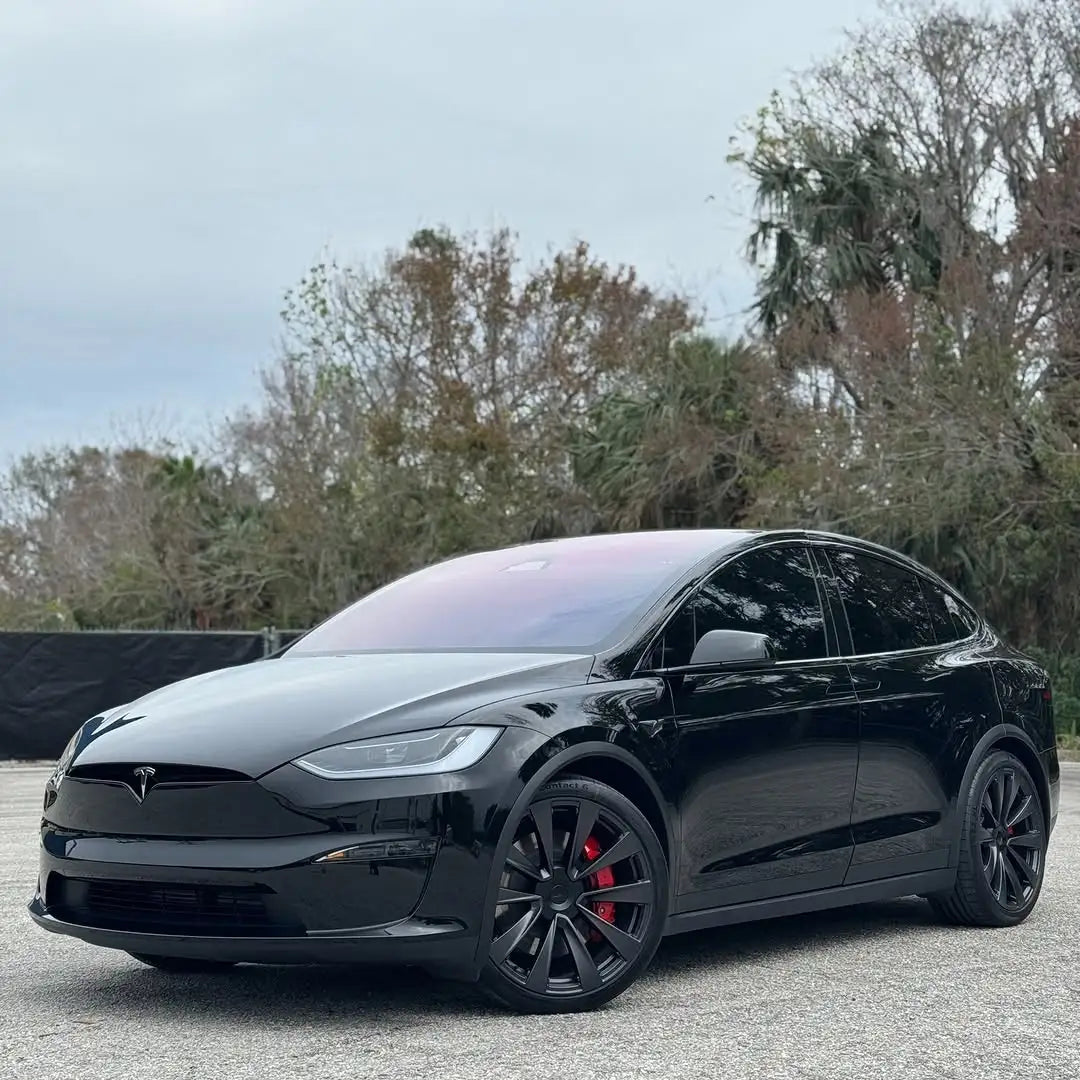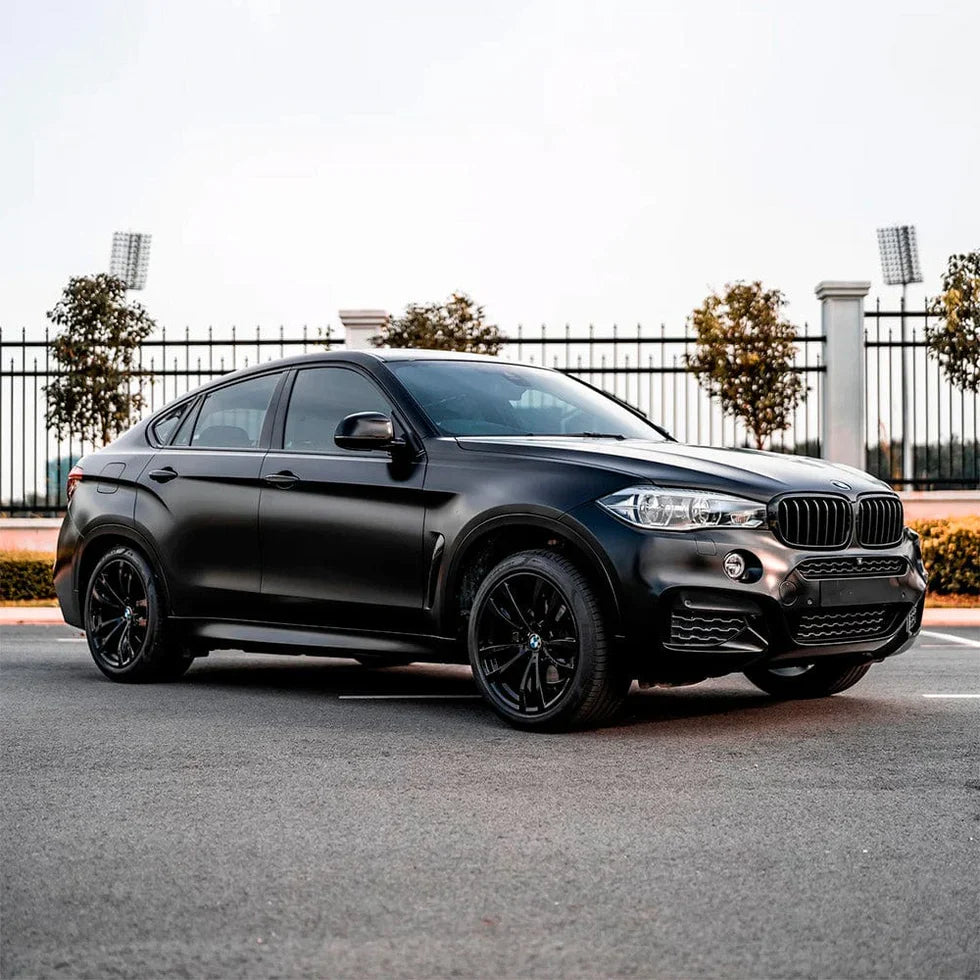Wrapping your vehicle is a popular choice for those looking to enhance its appearance or protect the original paint. But how much should you expect to spend on a car wrap? While pricing can vary significantly, one key factor to consider is the type of vinyl material you choose. Different wrap finishes—such as gloss, matte, metallic, or chrome—come at different price points, and each offers its own level of durability, appearance, and installation complexity. Understanding these differences is crucial when budgeting for your vehicle transformation.
Car wraps are crafted from durable PVC material, built to withstand both environmental and physical wear. The total cost of wrapping a car can vary significantly depending on several factors. For a full vehicle wrap done by a professional, prices typically range between $3,000 and $7,000. However, this is just an estimate. If you’re wrapping a high-end luxury or exotic car in pristine condition, the cost can increase substantially—often reaching anywhere from $10,000 to $18,000.
When estimating the cost of wrapping a car, it typically ranges from $5 to $15 per square foot for the vinyl material alone. On top of that, installation fees—usually between $3 and $4 per square foot—can vary depending on your vehicle’s condition, its shape, and the level of customization required. In some cases, the total cost may rise to around $19 per square foot. It’s important to note that the bulk of the expense often lies in labor rather than the vinyl itself. Here’s a general breakdown of average wrapping costs based on vehicle types:
When broken down by square footage, car wraps typically range from $5 to $15 per square foot. On top of that, professional installation may add an additional $3 to $4 per square foot. However, this cost can fluctuate based on the vehicle’s condition, design complexity, and specific wrapping requirements—sometimes reaching up to $19 per square foot. It’s worth noting that the bulk of this expense goes toward labor rather than the vinyl material itself. Below is a general overview of the average costs for different vehicle types.
Vinyl Wrap Cost Chart For Different Types Of Vehicle

- Family Sedan: A full wrap for a standard sedan typically starts at $3,000.
-
Compact Car: Smaller cars are generally more affordable to wrap, with prices starting from around $2,000.
-
Coupe: Depending on its dimensions, the cost to wrap a coupe usually falls between $2,000 and $3,000.
-
Compact Crossover: These vehicles generally start at $3,000 for a full wrap.
-
SUV: Larger SUVs require more material and labor, with prices beginning at $4,000.
-
Jeep: Wrapping a Jeep depends on the model. A two-door version may start at $3,000, while a four-door can go up to $4,500.
-
Truck: Due to their size, trucks have a wider price range—anywhere from $1,000 to $5,000. Smaller trucks typically start at around $2,000.
-
Commercial Vehicles (e.g. vans): Expect to pay between $3,000 and $5,000 for a complete commercial wrap.
-
Luxury & Exotic Cars: High-end vehicles demand more care and precision.
-
Audi: From $6,500
-
Lamborghini: Roughly $4,000 to $5,000
-
Ferrari: Around $7,000
-
Rolls-Royce: Can reach $10,000, due to the complexity of its body panels.
-
These figures serve as general guidelines and may vary based on design complexity, wrap material, and installer expertise.
How Much Does It Cost To Wrap A Car In Different Regions?
The cost of car wrapping can differ significantly based on several factors, including your location, the type of vinyl wrap used, the complexity of the design, the size of your vehicle, and the expertise of the installer. Below is a general overview of typical price ranges across different regions:
| Region | Factors | Cost |
| Asia | Lower labor costs can lead to lower prices, but material costs may vary depending on the region. | $1,500 - $3,500 |
| Europe | Higher labor rates and material costs can contribute to higher prices. | € 1,500 - € 5,500 |
| Middle East | Costs can vary depending on the specific country and local market conditions. | $2,000 - $4,000 |
| North America | Labor rates and material costs are generally higher in North America compared to some other regions. | $2,500 - $5,500 |
| Latin America | Similar to Asia, lower labor costs can lead to lower prices, but material costs may vary. | $1,500 - $3,500 |
Keep in mind that these figures are approximate, and the final cost may vary based on factors such as vehicle type, wrap material, and installation complexity. For the most accurate pricing and service comparison, it’s recommended to request quotes from several local installers.
How Much Does It Cost To Wrap A Vehicle?
In recent years, vinyl wraps have surged in popularity—and for good reason. They not only elevate your vehicle’s visual appeal with a sleek, high-end look, but also protect its original paint from harmful external elements. To truly enjoy these benefits, choosing a high-quality vinyl wrap is essential.

With so many vinyl wrap options on the market, choosing the right one can feel overwhelming—especially when cost is a major consideration. So, how much does it actually cost to wrap a vehicle? Let’s break it down and explore the key factors that influence the overall price.
Breakdown Of The Cost Of Wrapping A Vehicle
Wrapping your car is a great way to enhance its visual appeal while also adding a layer of protection to the exterior. However, understanding the associated costs is essential for making a well-informed decision. Below is a clear overview of the key expenses involved:
Premium Quality Vinyl
The main expense in car wrapping comes from the materials used. Using premium-quality vinyl is crucial to ensure a long-lasting and attractive finish. Material costs can fluctuate depending on the brand, type, and color of the vinyl selected.
Material costs for car wraps can range from $500 to over $5,000, depending on your vehicle’s size and design complexity. The wrapping method you choose also plays a significant role—partial wraps are much more affordable than full wraps. For example, at Highcool, a 5ft x 10ft vinyl roll in various finishes typically costs between $169 and $179, while specialty options like carbon fiber patterns can go up to $189.
Labor Costs for Vinyl Wrap Installation
Labor costs account for a substantial portion of the total car wrapping expense. Several factors influence this cost, including the complexity of the design, the installer’s level of expertise, and the time required to finish the job. Additionally, the installer’s location plays a role—services offered in upscale or high-demand areas typically come with higher price tags due to increased operational costs and local market rates.
Additionally, installers generally charge higher fees for larger vehicles such as SUVs, vans, or commercial trucks compared to smaller cars. Vehicles with complex curves, unique body shapes, or intricate design elements may also require more time, precision, and skill, which further increases the labor cost. On average, professional installation services range from $1,000 to $3,500 or more, depending on the project’s scope and difficulty.
Customized Vinyl Graphics on Vehicles
Choosing a custom vinyl wrap will naturally come with added expenses. These costs are influenced by several factors, including the complexity of the design, the number of colors involved, and the skill level of the graphic designer. Printing fees are also part of the total cost. It’s important to note that printable vinyl typically costs more than standard vinyl materials. For simple, minimalistic designs, prices may start around $500. However, more elaborate and highly detailed custom wraps can easily exceed $2,000, depending on the scope of the project.

The cost of a vinyl wrap varies based on the type of finish and the size of the vehicle. For a standard car, a solid color wrap with a matte finish typically ranges from $2,500 to $3,500. For larger vehicles such as trucks or SUVs, the price increases to between $3,500 and $5,000. Chrome wraps, known for being the most premium and challenging to install, come with a significantly higher price tag—usually starting at around $6,000, with the final cost rising depending on the vehicle’s size and design complexity.
Color And Finish Of The Vinyl Wrap
The final cost of your vinyl wrap largely depends on the customization options you select. If you opt for a single-color (monotone) wrap, it will generally be more affordable. On the other hand, multi-colored wraps or those featuring intricate designs typically come at a higher price. Additionally, the type of finish you choose—whether it’s glitter, metallic, gloss, satin, chrome, or matte—also impacts the overall pricing. Each finish varies in terms of material cost and application complexity.
Vinyl Aftercare: Extend the Life of Your Car Wrap
After installing your chosen vinyl wrap, you may want to add extra protection to extend its lifespan. Such treatments can increase the overall cost of the wrap. For instance, applying a liquid nano-ceramic coating enhances durability and provides a protective shield against water damage, UV rays, and minor scratches. The cost for this treatment typically ranges from $1,500 for a compact car to around $1,800 for an SUV.
The Quality Of The Vinyl Wrap
The quality of a vinyl wrap significantly impacts the overall cost of a car wrap. In this industry, the saying “you get what you pay for” holds true—higher-quality materials ensure durability, long-term UV protection, and safe removal without damaging the underlying paint.
Cheaper wraps may appear flawless at first but often deteriorate quickly, developing bubbles, warping around edges, or even cracking over time. Worse yet, low-quality vinyl can damage the car’s paint upon removal, leading to costly repairs. For the best results, cast vinyl—though more expensive—offers superior performance, while calendared vinyl is a more affordable but less durable alternative.

Many opt for calendared vinyl films because they cost 50–70% less than cast vinyl, mistakenly believing they’ve found a great deal. In reality, the initial savings often lead to higher long-term costs—cheaper wraps degrade faster, requiring expensive fixes for bubbling, peeling, or paint damage.
In contrast, cast vinyl offers superior flexibility, allowing for easy repositioning during installation. It resists water, provides reliable UV protection, and removes cleanly without damaging the paint. When choosing a wrap provider, always review material specifications carefully—never compromise quality for a lower price. Research and compare products to ensure lasting results.
The amount of vinyl wrap needed depends on the vehicle’s size and design.
The amount of vinyl wrap required depends on the vehicle’s size and model. As a general guideline:
-
Compact cars typically need 15–17 meters of film.
-
Mid-size sedans require 18–20 meters .
-
Full-size cars, small SUVs, and vans may use 20–23 meters .
Use this estimate as a reference when planning your wrap project to ensure you purchase the right amount of material.
| Vehicle Type | Quantity /Meters | Image | ||
| Sedan | 16-18 meters | 🚗 | ||
| Wagon | 19-22 meters | 🚚 | ||
| SUV and 4WD | 17-22 meters | 🚙 | ||
| Micro | 8 meters | 🚘 | ||
| Mini | 13 meters | 🚗 | ||
| Van | 23 meters | 🚐 | ||
| Coupe | 14-15 meters | 🏎️ | ||
| Pick-up | 21-22 meters | 🚛 | ||
| Hatchback | 17-19 meters | 🏎️ | ||
| Sports car | 17-18 meters | 🏎 |
Full Or Partial wrap
Partial Wrap Pricing Guide (Approximate Costs):
-
Roof, hood, or trunk: $300 per panel
-
Door handles: $60 each
-
Side-view mirrors: $100 per mirror
-
Spoilers: Around $300

Custom & Commercial Vehicle Wraps: Cost Considerations
The complexity of your design and intended use significantly impact wrapping costs. Custom designs requiring full-vehicle coverage demand more materials and labor, increasing the price substantially. Commercial wraps with simpler designs typically start around $3,000, while elaborate custom wraps can exceed $10,000 depending on:
-
Design complexity and customization level
-
Total surface area requiring coverage
-
Special material requirements
-
Installation time and labor intensity

How Location and Climate Affect Wrap Costs
Geographic factors significantly influence vehicle wrap pricing due to installation requirements. In colder climates, installers face additional challenges:
-
Extended heating time needed for proper vinyl adhesion
-
Slower curing process for the adhesive
-
Potential need for climate-controlled installation spaces
Conversely, warmer regions typically offer cost advantages:
-
Natural heat accelerates the installation process
-
Improved vinyl flexibility and adhesion
-
Reduced labor time requirements
These environmental factors directly impact labor costs, with installations in temperate climates generally being more economical than those in colder areas.

DIY Car Wrapping: Cost & Considerations
As Enzo Ferrari famously said, “What’s behind you doesn’t matter”—and with the right preparation, a DIY wrap can be a rewarding project.
While DIY car wrapping is significantly cheaper than professional installation (typically $1,000–$2,500 vs. $3,000–$10,000+), it's an enormous undertaking that requires careful consideration. Before committing to this complex project, ask yourself these key questions:
-
Do I have the patience and precision needed for this meticulous process?
-
Am I prepared to invest in quality materials and tools?
-
Can I dedicate sufficient time (often 30–50+ hours for first-timers)?
-
Am I comfortable with potential imperfections in the final result?
The cost savings are appealing, but success depends on your skill level, preparation, and willingness to learn.
Tools Required For Vinyl Wrapping A Vehicl
Essential Tools for DIY Vinyl Wrapping
A successful vinyl wrap installation requires the right tools for preparation, application, and finishing. Here’s a breakdown of the must-have equipment:
Surface Preparation
-
Surface cleaner – Removes dirt, wax, and contaminants before wrapping.
-
Isopropyl alcohol – Ensures a grease-free, clean surface for optimal adhesion.
-
Clay bar – Eliminates embedded impurities from the paint.
-
Microfiber cloth – Absorbs moisture and wipes away residue without scratching.
Application & Adjustment
-
Squeegee – Smooths out air bubbles and creases during installation.
-
Wrapstick Flex – A flexible tool for tucking vinyl into curves and tight spaces.
-
Heat gun – Softens vinyl for stretching and activates adhesive for better bonding.
-
Infrared thermometer – Monitors temperature to avoid overheating.
Cutting & Trimming
-
Cutting tape – Guides clean, straight cuts on vinyl.
-
Snitty blade – A safety cutter that trims vinyl without damaging the paint.
-
Blade – Removes excess wrap after installation.
-
Tweezers – Helps weed out small vinyl pieces from intricate areas.
Positioning & Protection
-
Small magnets – Temporarily holds vinyl in place during alignment.
-
Masking tape – Protects areas not being wrapped.
-
Tape measure – Ensures accurate dimensions for precise cuts.
Convenience & Safety
-
Spray bottle – Applies slip solution or cleaner during installation.
-
Gloves – Improves grip and prevents fingerprints on adhesive surfaces.
This toolkit ensures a professional-quality wrap job while minimizing errors. Would you like recommendations on specific brands or additional advanced tools for complex projects?
Final Thoughts on Car Wrapping
Vehicle wrapping has become increasingly popular, serving both aesthetic and practical purposes. Beyond enhancing your car's appearance with stunning finishes, it provides valuable exterior protection against scratches, UV rays, and minor abrasions.
When considering a wrap, cost is a key factor influenced by:
-
Material quality (cast vs. calendared vinyl)
-
Vehicle size and complexity
-
Design customization
-
Installation method (professional vs. DIY)
While the DIY route offers cost savings (typically 50-70% less than professional installation), it demands significant skill, patience, and the right tools. For guaranteed flawless results that last, professional installation – though more expensive – delivers superior quality and long-term value.
Ultimately, your choice should balance budget with desired outcome: DIY for experienced enthusiasts, or professional installation for showroom-worthy perfection.






Share:
Car Wrap Materials - A Complete Guide
How Much Vinyl Do You Need to Wrap Your Vehicle? Everything You Should Know